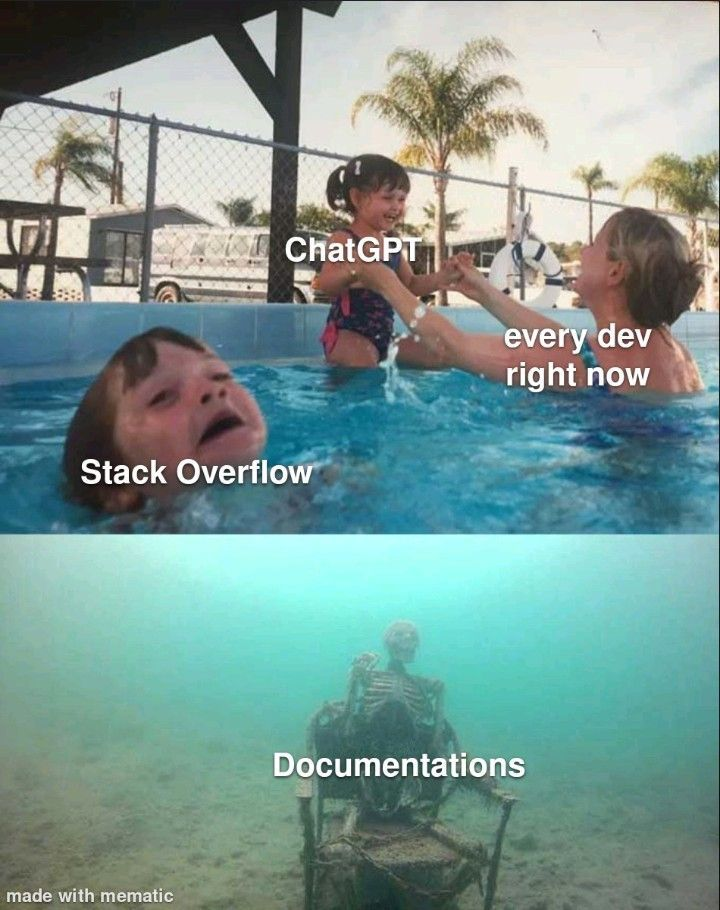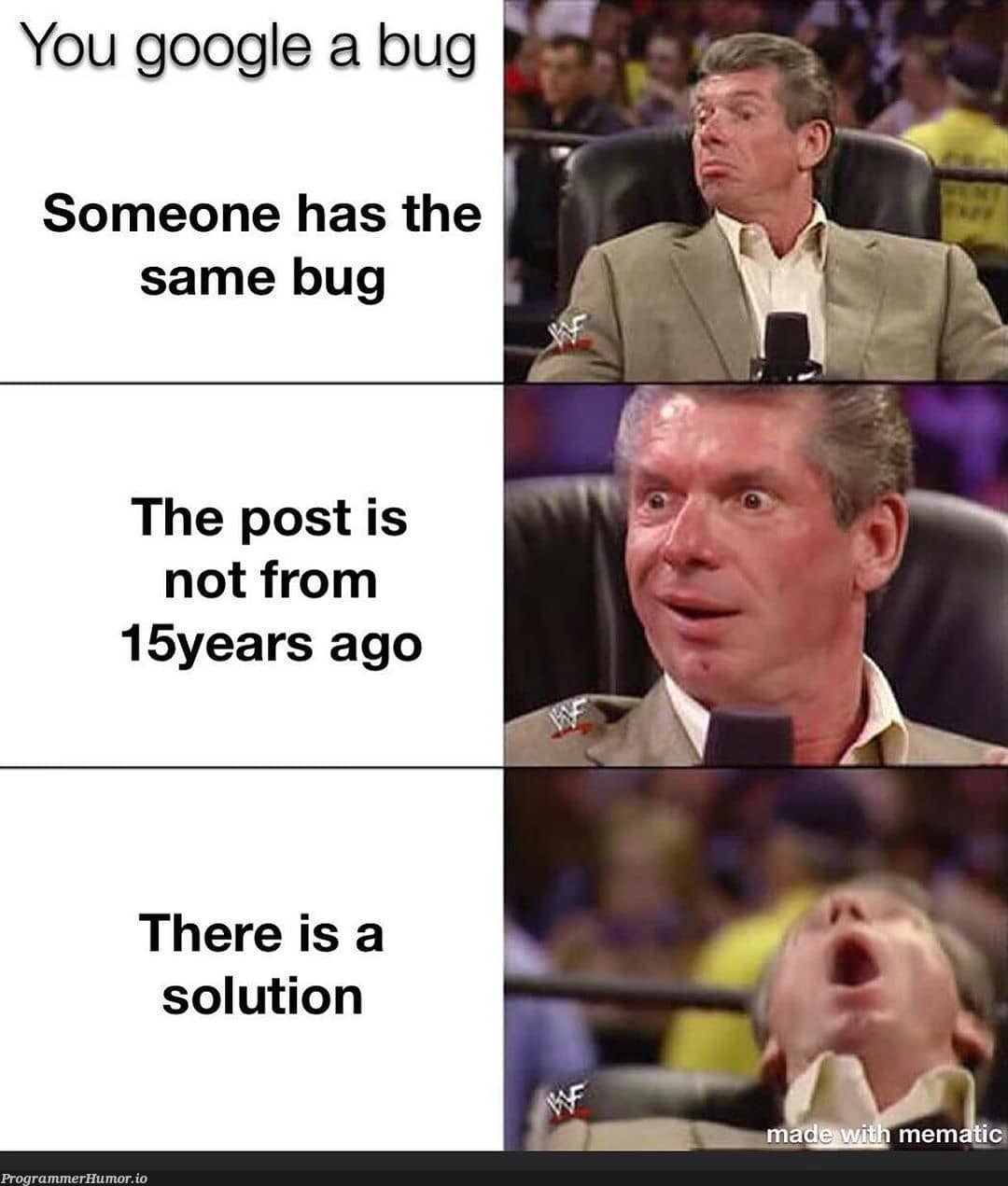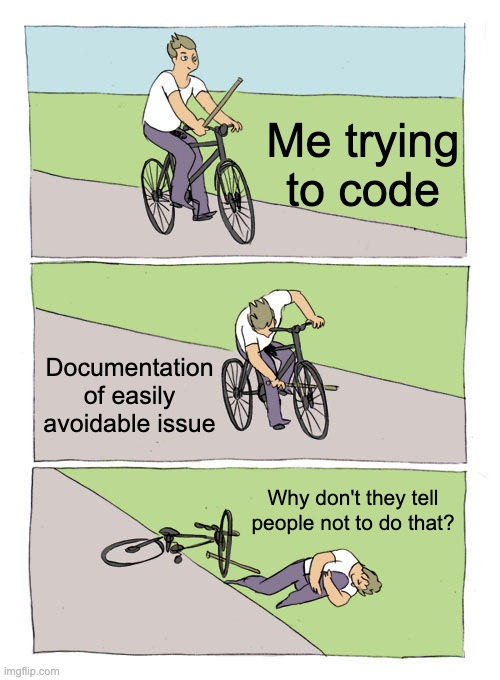
If you’re like me a dev who grew up Googling error messages and living on Stack Overflow tabs you probably never cracked open a 900-page {Insert you programming language/framework} book to learn how to do "that thing". Sure classics like "Clean Code" didn't go away but on day-to-day stuff my learning curve didn’t start with books it started with copy-pasting from stackoverflow, blogs, lynda/pluralsight turtorials, documentations, and piecing things together from a dozen open tabs.
The impact from books to the web was huge and I feel we havent experienced a similar shift until today. Just like the devs before us moved from books to the web, we’re now moving from the web… to AI. We’re in the middle of another huge shift in how software engineers learn, debug, and build. That shift empowers us but also greatly changes the skillset required and the ceiling of expectations. Ultimately it raises existential questions, will we still be needed?
🔁 The First Great Transition: Books → Web (Forums → Google → Stack Overflow)
Back when internet was not a thing, if you wanted to learn to code, you didn’t Google your way through it you grabbed a fat book from a library or bookstore and just… read it. Cover to cover. Like a novel. If you were lucky, there was a 3.5” floppy glued inside.
Then the internet happened.
Suddenly we had forums, blogs, IRC channels, and eventually Stack Overflow, which became the holy grail of “why is my code not working??” searches.
This era was about fast, specific, reusable answers.
No more flipping pages. Just copy, paste, and pray.
🤖 Enter the Web → AI Shift
Now, it’s happening again.
Google and Stack Overflow are still there (and still amazing), but let’s be real how often do you go there now vs. just prompting an AI?
Instead of:
"C# how to parse date format yyyyMMddTHHmmssZ site:stackoverflow.com"
We now ask:
"Hey, can you write me a method that takes an ISO timestamp and converts it to local time?"
And the answer isn’t a dozen posts to sift through it’s a working snippet, tailored to your ask, in plain English.
⚖️ The Similarities Are Kind of Wild
| 📚 Books → Web | 🌐 Web → AI |
|---|---|
| Had to know the topic upfront | Can just describe the problem |
| Required memorization | Requires better communication |
| Deep foundational understanding | Fast iterative trial and error |
| One answer fits many | One answer fits you |
In both cases:
-
The barrier to entry droped and increased at the same time
-
The speed of learning increased
-
The depth of knowledge... shifted
You don’t need to know how everything works to ship something that works and that’s both powerful and a little scary especially for the next generation of software engineers that will never experience the same learning experience current generation did. Will they need it or will AI be so good that wont even need the reviewing and tweaking of Senior Engineers? In that case what being a "software engineer" will mean in the future?
It’s a strange time to be in tech. On one hand, the barrier to entry has never been lower anyone can jump in with a fast ChatGpt empowered learning experience, its almost like having a private tutor. Senior engineers can adapt from one language/framework to a different and learn new things much faster.
But at the same time, expectations have skyrocketed. Entry-level roles often assume you already know the tools, workflows, and architectural thinking of a senior engineer. But for senior engineers to know what to ask and be able to review the answers it took years of experience, entry-level roles dont have that luxury. And for actual seniors? AI doesn’t lower the bar it raises it. Now that we have these powerful tools at our fingertips, we’re expected to deliver faster, smarter and with less hand-holding. It’s easier to get started, sure but it’s also easier to get left behind.
🧘♂️ Wrapping Up: The More Things Change...
Books made way for forums. Forums got replaced by search engines. Stack Overflow ruled for a decade. And now, AI is becoming the new default for how we think and build.
The tools change. The cycle continues.
But we’re still here... Will we still be here in the near future? I think yes but with a different skillset and expectations. We will need to adapt on skillfully orchestrating and guiding the process rather than hands on programming. Like I heard recently on a podcast and couldnt agree more is that the process of AI replacing us is going to follow a trajectory similar to autonomous-driving. AI will get to that 90% of being almost ready to replace us pretty quickly in the next couple to five years but the last critical 10% will take... I dare to say... decades.
We will see... meanwhile we are propably saved from stubbornly not reading 10min documentation to save us from hours of debuging . We will still debug but because AI failed to do it instead....
Vasilis K